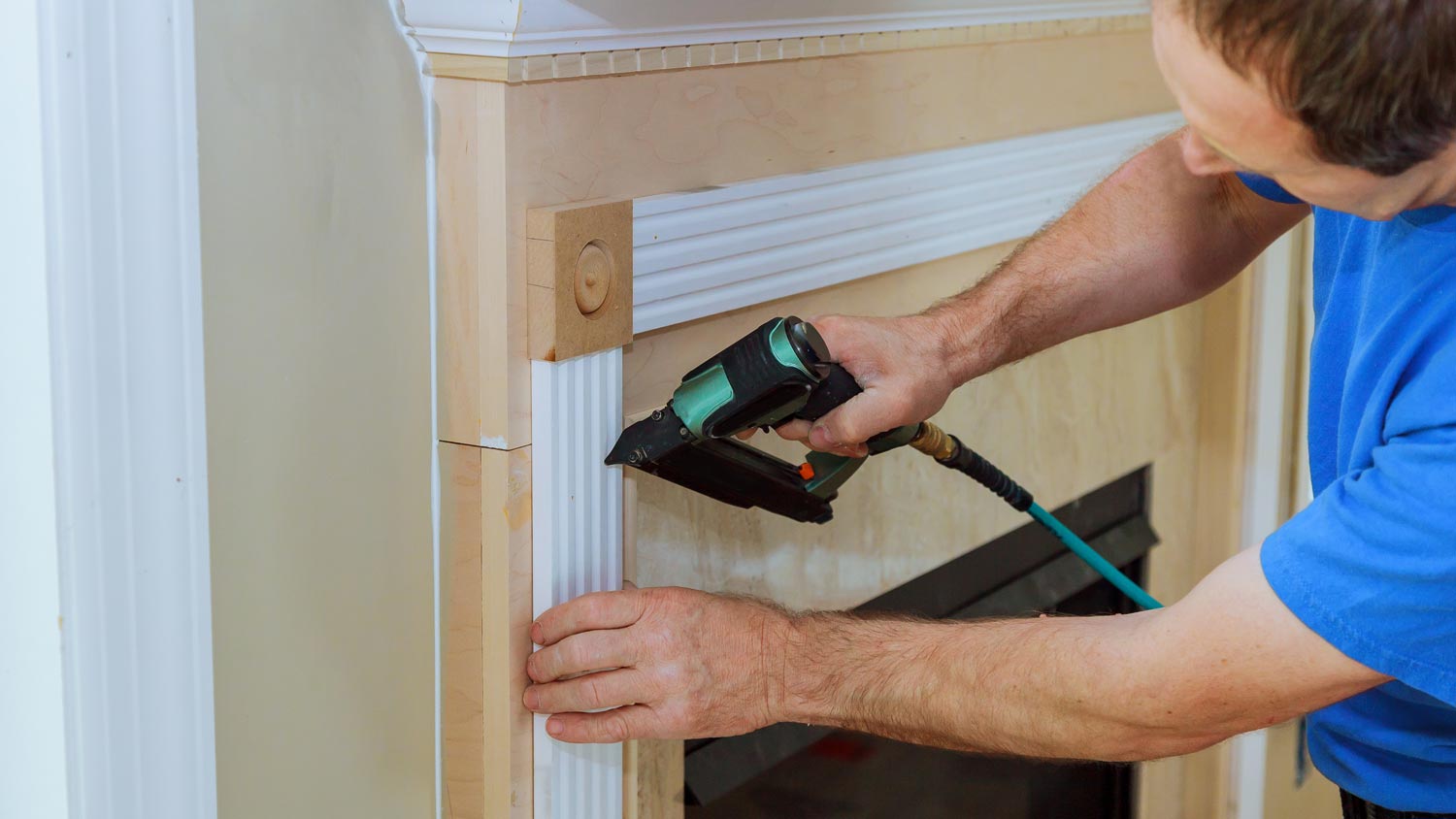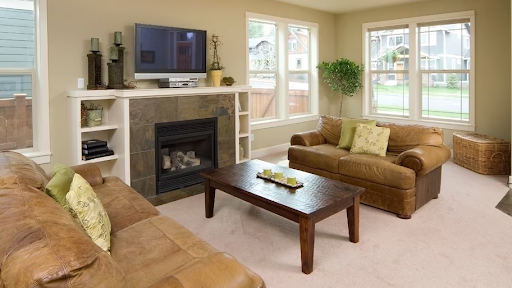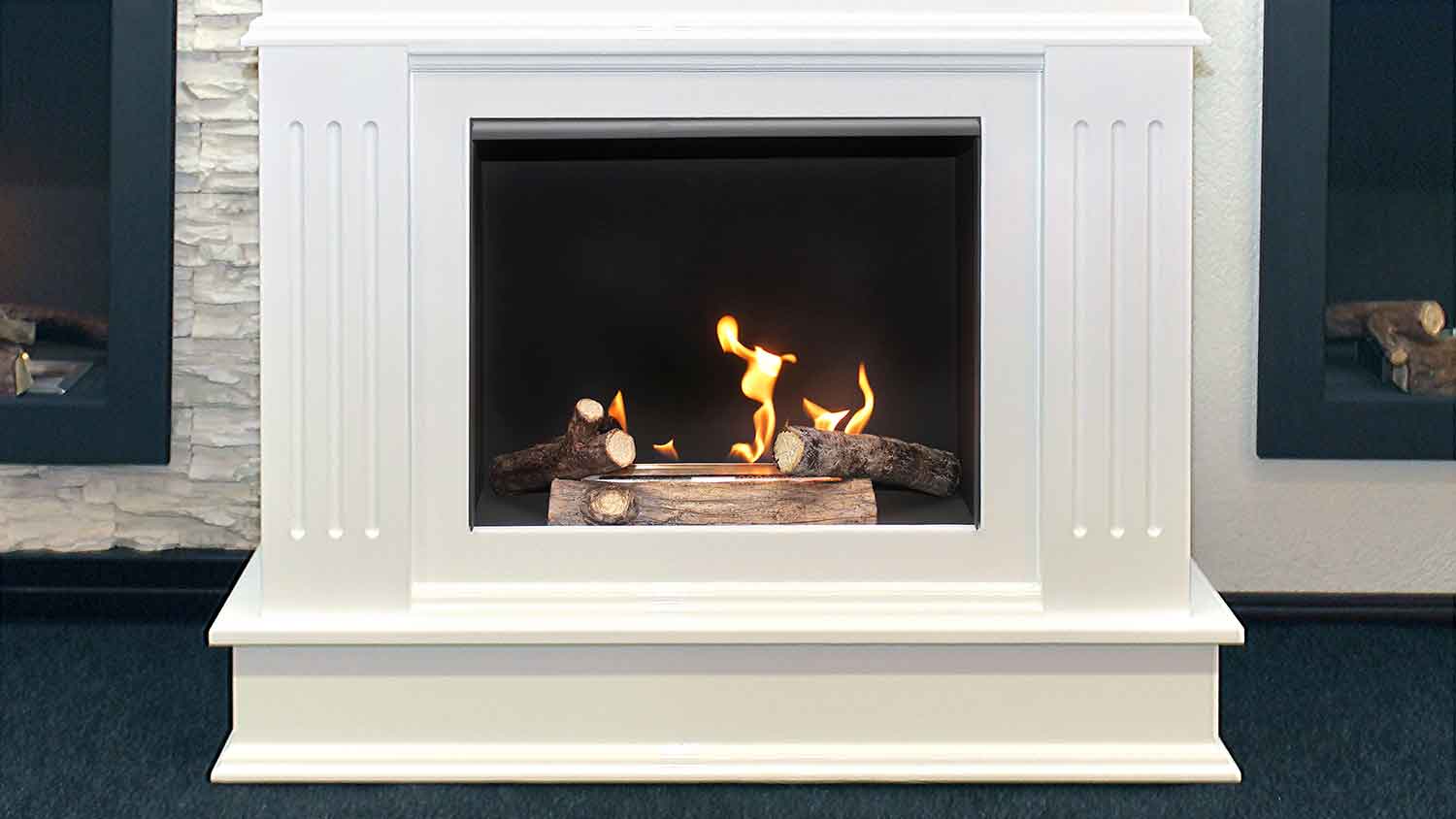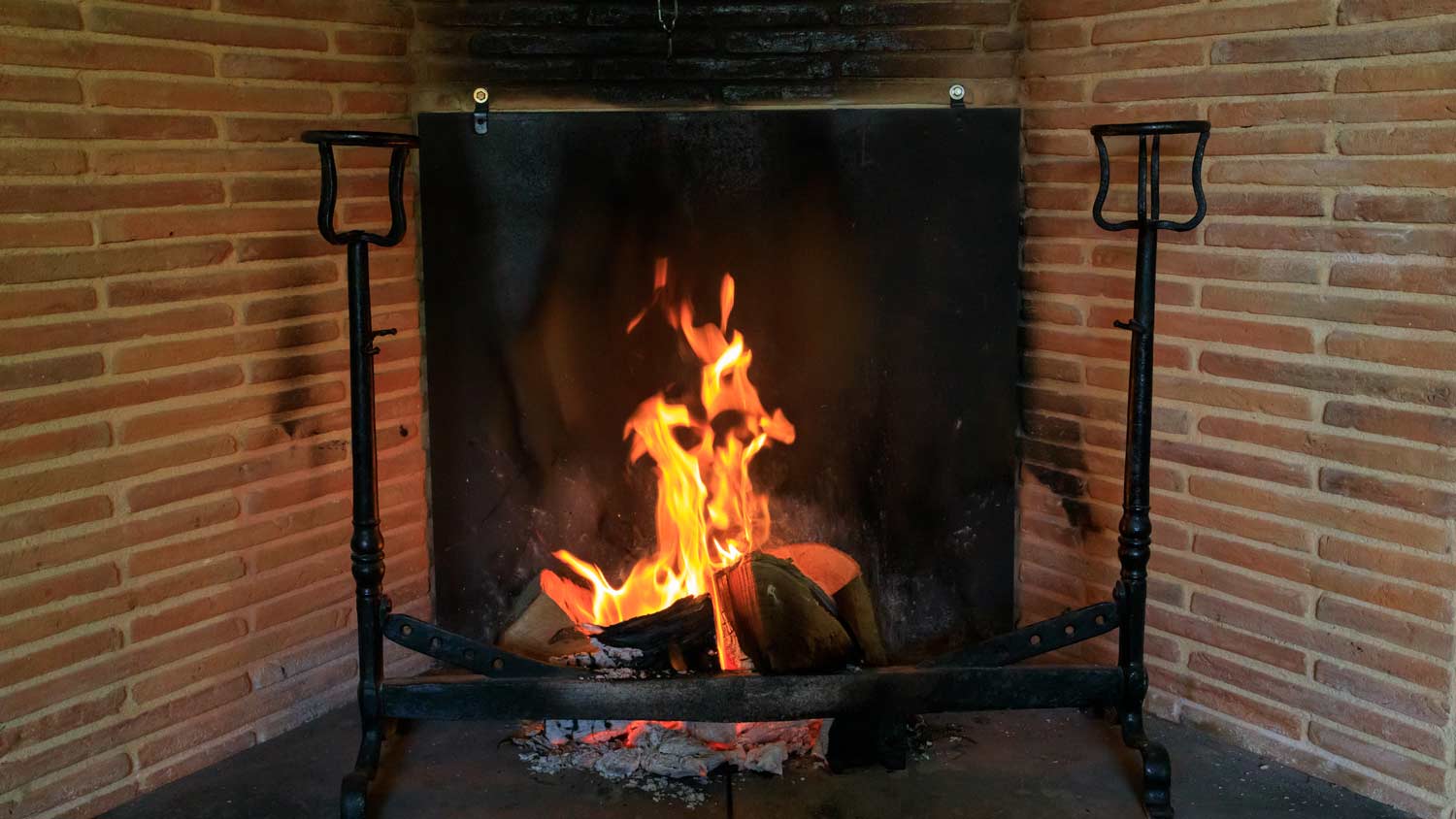Fireplace Maintenance Tips That Will Keep You Cozy for Longer
Stay safe and keep your investment from going up in flames


Unchecked buildups of soot in the firebox, cracks in the chimney or mantel, and infrequent inspections and sweepings are all things that can increase the overall cost of owning a fireplace. However, following a few general rules will help you maintain your fireplace without having to spend a lot. Whether you have a wood or gas-burning model, you’ll be able to sit fireside for years to come with these 10 fireplace maintenance tips.
1. Remove Ashes From the Firebox After Every Use
It’s easy to take a little snooze as the last remaining embers of a cozy fire die off. But when left unchecked, residual ash from a wood-burning fireplace can build up, block airways, and divert smoke and carbon monoxide back inside your home, all of which can be hazardous to your health and safety.
Once the firebox has completely cooled, use a specialized ash vacuum to clear the area. These vacuums can withstand hot temps and prevent soot from escaping into the air.
2. Schedule Regular Deep Cleaning Sessions
Along with day-to-day ash removal, occasional deep cleaning sessions are necessary to guarantee your fireplace looks great and functions properly. How often you should deep clean depends on your usage and the type of fireplace; once a week for regular use and once every two months for infrequent use.
For example, cleaning soot from a wood-burning fireplace is a relatively easy project for just about any homeowner that doesn’t mind a bit of scrubbing. Tackle the inside of the fireplace box, the surround, and the glass doors, if you have them.
To deep clean gas fireplaces, you’ll need to turn off the gas valve and disassemble the artificial logs about once a year.
3. Repair Minor Damages Right Away

Small damages—like cracks in the fireplace and worn-out fireplace screens—can become big problems quickly. Repairing these types of issues is much easier and less costly to do the less time you wait, whether you’re going the DIY route or hiring a professional fireplace repair person in your area.
4. Sweep and Inspect Your Chimney Annually
A local chimney sweep is more likely to notice the little things that the average homeowner might miss—and have the tools to reach all those tough-to-access spots deep within the chimney and high upon the roof. The National Fire Protection Association recommends having your chimney and fireplace inspected once a year.
Chimney sweep costs can range from $130 to $380, depending on the level of work required. Standard chimney inspections cost between $100 and $950, but if yours requires a closer look, you could pay up to $5,000.
5. Don’t Make It Your Primary Heat Source
Traditional masonry chimneys and fireplaces aren’t designed to heat a whole home. Fireplaces in homes built before 1985 are usually poorly insulated and unlikely to provide very much warmth outside of their direct vicinity.
If this is your situation, utilizing another heat source—like a furnace or heat pump—will minimize your need for your firebox and require less money for chimney cleanup and repairs.
6. Get Extra Protection With a Chimney Cap

Investing in a chimney cap is a great way to keep your chimney free from debris. Animals and fallen branches are less likely to get stuck and block airways with this extra security measure. You’ll pay about $300 on average to have a chimney cap installed—but having one in place could spare you from far steeper fireplace maintenance costs down the line.
7. Keep the Damper Closed When the Fireplace Isn’t in Use
Though the damper should open fully when your fireplace is in use, you’ll need to keep it closed otherwise to limit moisture damage and debris blockages. Ensure your damper vents properly and that it opens and closes without struggle. If your damper is tough to maneuver, you may have a blockage, which means you’ll need to call in a pro to clear it up.
8. Burn Hardwoods to Lower Creosote Levels
All woods burn differently, but some produce higher levels of creosote than others. Creosote is a carbon residue that will coat every part of your fireplace, from the flue to the chimney, putting you and your home at risk of hazardous fumes like carbon monoxide and even chimney fires.
In terms of the best wood for fireplaces, hardwoods (like maple and oak) are better than softwoods because they burn less quickly and create less ash as a result. If you need a quick way to reduce buildup, burning a creosote sweeping log will loosen the hold this chemical has over your fireplace. However, chimney sweeps should inspect even mild buildups to ensure that carbon monoxide and smoke are leaving your home, not entering it.

Consider hiring a local fireplace remodeler to install an electric, wood, or gas fireplace insert into your traditional masonry fireplace. They’re better insulated than traditional fireplaces, so they lose a lot less heat—and could help you save on energy, cleaning, and fireplace repair expenses down the line.
Wood-burning fireplace inserts, for example, are typically equipped with filtration systems, which minimizes the amount of ash and creosote buildup in your chimney while also reducing your wood-burning emissions to almost zero.
10. Hire a Chimney Professional to Handle Larger Repairs
The cost of fireplace repairs and maintenance will depend on where your problems lay. Sometimes these issues are not visible to the naked eye. When in doubt, hiring a local chimney pro to assess your situation is the best and safest way to find out what’s going on.
The cost of fireplace repairs depends on the complexity of the job, but most range from $180 to $1,010.
Wood Fireplace Maintenance Checklist
When you own a wood fireplace, you’ll need to perform regular, ongoing maintenance, such as:
Booking an annual chimney sweep and fireplace inspection
Clearing ashes from the firebox
Cleaning the fireplace bricks, including the firebox and surround
Wiping down the fireplace screen or glass doors
Inspecting for cracks or other damage (and repairing them as soon as possible)
Burning seasoned wood (preferably hardwoods)
Checking your smoke and carbon monoxide detectors
Gas Fireplace Maintenance Checklist
Gas fireplaces are cleaner than their wood-burning counterparts, so they don’t require as much upkeep. Still, it’s important to perform certain gas fireplace maintenance tasks, including:
Scheduling a yearly fireplace inspection and chimney cleaning (if the fireplace is vented through your chimney)
Removing, inspecting, and cleaning the glass doors
Cleaning logs or rocks (and replacing them as needed)
Vacuuming the fireplace interior
Wiping down the exterior
Inspecting the paint for peeling or bubbling
Replacing the remote batteries
Testing your smoke and carbon monoxide detectors





- How to Build a Fireplace to Boost Your Home’s Coziness Factor
- 9 Chimney Maintenance Tips to Ensure Every Winter’s a Cozy One
- What Is a Fireplace Inspection? 7 Reasons They’re So Important
- 50+ Stylish Fireplace Ideas to Boost Your Home’s Value
- 30 Fireplace Remodel Ideas to Maximize Your Home’s Coziness
- Who Installs Fireplace Inserts? A Guide to Finding the Right Pro for the Project
- How Often Do You Need to Clean Your Chimney?
- Make Your Fireplace the Center of Attention With These 13 Tips
- Who Do You Hire for a Fireplace Remodeling Project?
- 14 Inspiring Ways to Create a Striking Fireplace Surround















